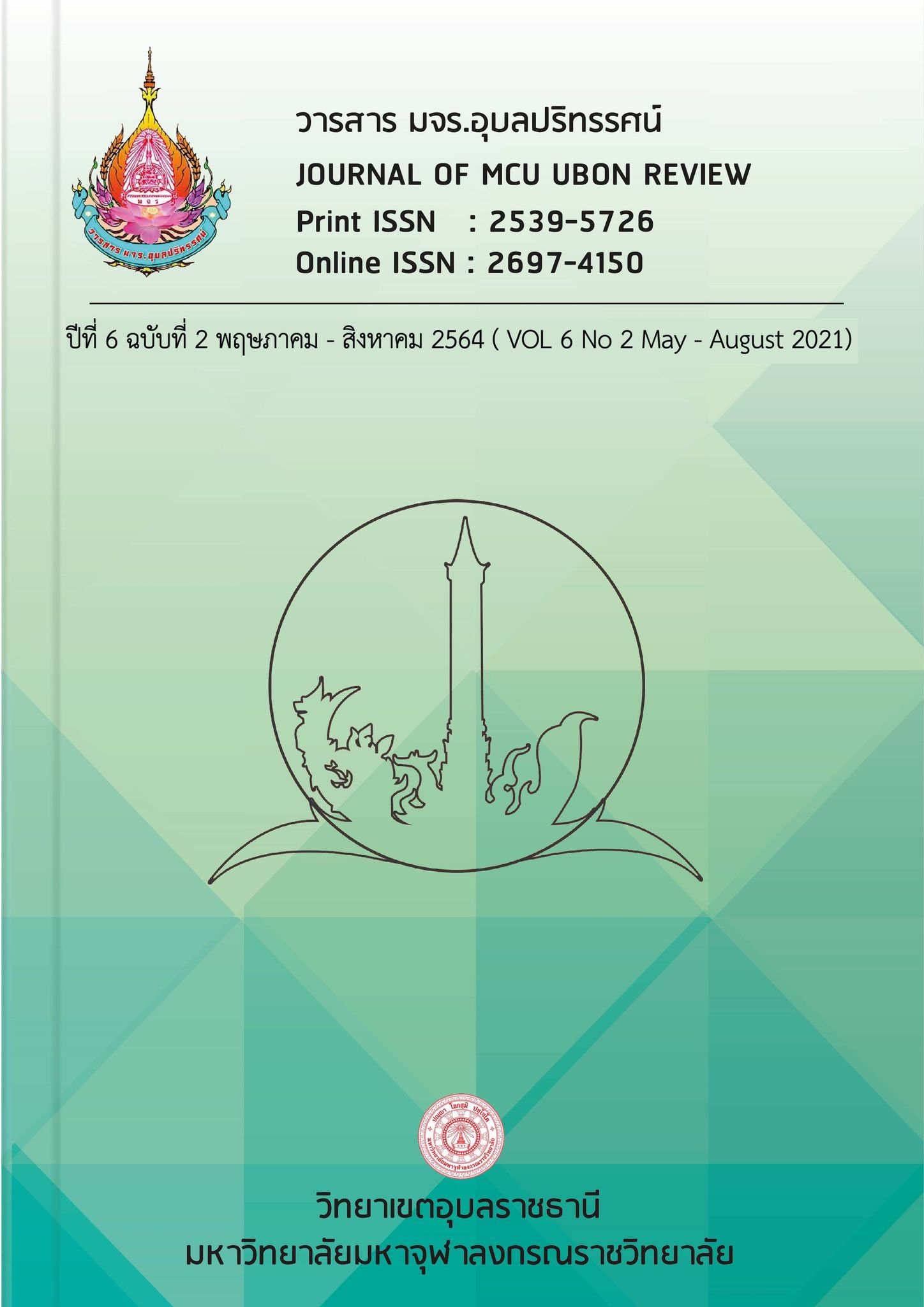The Effect of Project Approach on Young Children’s Ability in Reasoning Thinking: Ban Nonchai Municipality School, Muang District, KhonKaen Province under the KhonKaen
Main Article Content
Abstract
The purposes of this research were to study of ability in the reasoning thinking of young children after the project approach and compared the logical thinking ability of young children before and after the project approach. The sample was children aged 5-6 years, kindergarten, Year 3/2, Semester 1, Academic Year 2020, Ban Nonchai Municipality School, Muang District, KhonKaen Province under the KhonKaen Provincial Administrative Organization. It consisted of 20 people, sampled by simple random sampling for 8 weeks, 3 days a week, from 09.00 - 09.40 AM. For experience appending activity, the research tools were 2 learning plan, a consistency index of .67 - 1.00, and a test for measuring the logical thinking ability of young children. The consistency index of .67 - 1.00 and a confidence value of .90. This research was an experimental research One - Group Pretest Posttest Design. The statistics used in data analysis were t-test for Dependent Samples.
The research results were found that:
- The ability of logical thinking that has been learned as a project approach after learning found that the average score was higher than before activities and project approach learning was able to develop logical thinking ability for young children.
- To compare the ability of logical thinking. That has been learned as the project approach before and after learning. After learning had a higher average score than before studying the project approach. It was significantly higher at the .01 level.
Article Details
References
คณะกรรมการการประถมศึกษาแหงชาติ, สํานักงาน. (2536). เอกสารและผลงานวิจัยการจัดการศึกษาระดับกอนปฐมศึกษาในประเทศไทย. กรุงเทพมหานคร : คุรุสภาลาดพราว
เชิดศักดิ์ โฆวาสินธุ. (2530). การฝกสมรรถภาพทางสมองเพื่อพัฒนาคุณภาพการคิด.
ปริญญานิพนธ กศ.ด. (วิจัยพัฒนาหลักสูตร). กรุงเทพฯ : บัณฑิตวิทยาลัย
มหาวิทยาลัยศรีนครินทรวิโรฒ. ถายเอกสาร.
ทิศนา แขมณี. (2536). หลักการและรูปแบบพัฒนาเด็กปฐมวัยตามวิถีชีวิตไทย. พิมพครั้งที่ 2.
กรุงเทพฯ : สํานักพิมพจุฬาลงกรณมหาวิทยาลัย.
ธัญลักษณ ลีชวนเคา. (2544). การคิดวิจารณญาณของเด็กปฐมวัยที่เลนเกมการศึกษามิติสัมพันธ.
ปริญญานิพนธ กศ.ม. (การศึกษาปฐมวัย). กรุงเทพฯ : บัณฑิตวิทยาลัย
มหาวิทยาลัยศรีนครินทรวิโรฒ. ถายเอกสาร.
นงเยาว์ แข่งเพ็ญแข. (2538). เทคนิคพัฒนากระบวนการคิดและเรียนรู้ของเด็กปฐมวัยให้ถึงขีดสุดศักยภาพและยั่งยืน. วารสารการพัฒนาหลักสูตร.
วัฒนา มัคคสมัน. (2539). การพัฒนารูปแบบการเรียนการสอนตามหลักการสอนแบบโครงการเพื่อเสริมสร้างการเห็นคุณค่าในตนเองของเด็กวัยอนุบาล. วิทยานิพนธ์ ค.ม. (การศึกษาปฐมวัย). กรุงเทพฯ : บัณฑิตวิทยาลัย จุฬาลงกรณ์มหาวิทยาลัย. ถ่ายเอกสาร.
สายสุรี จุติกุล. (2543). กระบวนการเรียนรู้ของเด็กปฐมวัย. กรุงเทพฯ : บางกอก บล็อก - ออฟเซ็ท.
สิริมา ภิญโญอนันตพงษ. (2538). แนวคิดสูแนวปฏิบัติ : แนวการจัดประสบการณปฐมวัยศึกษา
(หลักสูตรการศึกษาปฐมวัย). กรุงเทพฯ : ดวงกมล.
Katz, L.G.; & Chard, S.C. (1994). Engaging Children’s Minds : The Project Approach.
Norwood: N.J. Ablex. Katz and Chard (2000: 186 - 188)
. (2000). The project approach : An overview. IN J.L. Roopnarine, & J.E Johnson (eds.), Approaches to early childhood education. Pp. 186 - 188. Columbus,
OH : Merrill.


